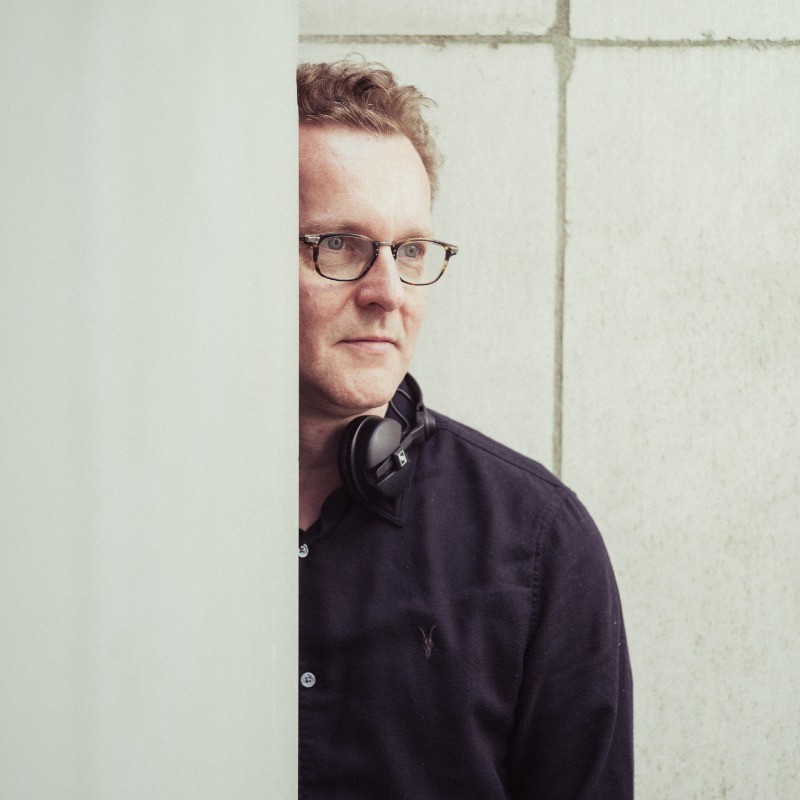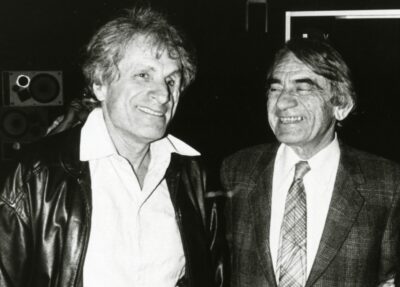Since 2019, David Christoffel has been offering a weekly radio program where each musical theme is debated in the company of specialized and varied contributors: writers, musicians, musicologists, etc. Metaclassique is inventing a new broadcasting model, both on the web and on a hundred or so radio stations, but also a new way of talking about music. Interview with a passionate and committed producer.
David, how did the Metaclassique program come about?
After many happy radio experiences - but all too soon interrupted - in several major institutions, I too often felt cut off for the wrong reasons. Metaclassique was born of an indelible desire to create a radio space independent of the vagaries of the austerity policies that plague public radio and systematically result in editorial choices that reduce pedagogy to a game of trivial posturing. In the thirty years I've been working in radio, I've gradually set out to find a way of talking about music that is both articulate and nuanced, a critical and enlightened spirit that breaks away from the prevailing condescending popularization, where the democratization of classical music would have us believe that musical knowledge is necessarily boring and sad. Our ambition was to go against this implicit trend, by creating a space of freedom that could be at once transgenre radiophonically (ranging from interviews to radio creations, via educational workshops), transesthetic musically (from the Middle Ages to the contemporary) and indisciplinary editorially.
What is its ambition?
The aim is to explore and cross-fertilize approaches. It seems to me that there's not enough to say about music when it's limited to professional musicians. If I also invite researchers from all disciplines, choreographers, listeners, amateurs..., it's to open up new ways of talking about and with music. But I'm careful not to let the eclecticism of the statuses become an end in itself. It's not just a question of crossing points of view like so many static expertises; we also have to invent forms so that these encounters don't get caught up in the self-promotional urgencies that freeze their positions. Hence the importance of varying interview devices and set-up configurations.
How do you choose your program titles (I think the idea is very good, all these verbs in the infinitive, very meaningful, simple and effective), do you do this after the recording?
I've gone back to the principle of titling by verb that I used in Ouvrez la tête (my thesis on Satie) (MF éditions, 2018) to get around the pomp of proper nouns and the cult of personality it imposes, the privatization of musical functions, the overexposure of the front of the stage.
How do you choose your guests and subjects?
The choice of guests depends on the subjects and the axis in which I build around the verb. But sometimes the title is decided with the guests, whose meeting I make a kind of intuitive bet. In any case, I try not to systematize the process, so as to have a wide variety of protocols. The fact of titling with a verb is just about the only element of intangible form. And I try not to allow others to become established, to try to renew even the approach strategies of the guests to whom I propose sometimes unprecedented interview protocols.
How did you find these 100 broadcasters?
If community radio stations clearly provided the most favorable environment for this project, it's because in addition to being run by enthusiasts convinced of the social utility of popular education through radio, they are - with a few exceptions - generalists. As a result, they suffer much less from the tendency towards repertory cadastralization found on theme radio stations (a program by period or by formation or instrument, or even a program focusing on a single composer). In this way, I'm able to work precisely on the lines of flight that, starting from the classical, weave ramifications on themes that I deliberately choose to be tangential in order to embrace questions that are not only musical, but also socio-political, poetic, existential or philosophical. If I now have over a hundred presenters - to the point of making Metaclassique the most shared program by free radios - is that I already had a long-standing knowledge of the associative radio scene (having worked for a long time at Sophia, Radio France's program bank).
How do you organize these face-to-face encounters that are so important to you?
When I speak of an "intuitive gamble", I'm looking for a balance between a pleasure principle and a desire to anchor things. The pleasure principle ranges from the excitement of getting people to meet each other (some collaborations were born out of encounters in Metaclassique) to the discovery, together, of new questions. And the desire to be anchored is simply a matter of having the desire for each program. If I'm careful to suspend my positions in relation to the theme being addressed, they color my questions and hold the construction arc of the programs.
Interview by Guillaume Kosmicki
Read Guillaume Kosmicki's review, The Annals of Metaclassicby David Christoffel on Resmuscia
And Etienne Kippelen's book, Chansons françaises & musique contemporaine, published by Presses Universitaires.



)
